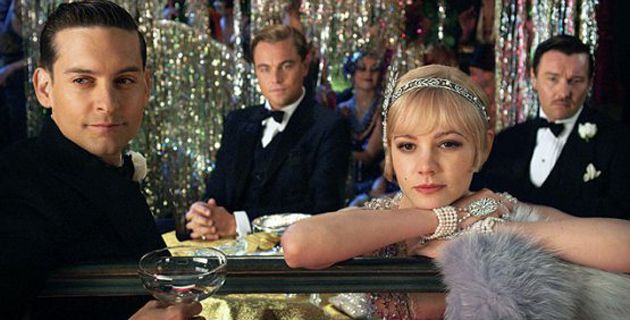Expect to be entertained. Expect a spectacle. Expect to be exhausted by the 2 hour and 22 minute run time. Expect to enjoy masterful actors skillfully maneuvering their way around each other. Expect parties you want to jump into, with dripping diamonds, drop-waist dresses, wavy flapper hair, and an incredible soundtrack.
What not to expect: A nuanced literary adaptation, because that is not what this film is.
“The Great Gatsby,” F. Scott Fitzgerald’s most famous book — beloved by English teachers, and heralded as a great American classic — has been adapted to the screen three times. This time around, Baz Luhrmann, of “Romeo and Juliet” and “Moulin Rouge” fame, periodically captures the desperate luxury of the roaring ‘20s in an alternate universe of hyper-clear, fast-paced, hip-hop-heavy opulence. This is not Gatsby simply being adapted for the screen; this is Luhrmann adapting Gatsby.
Some of the nuances of the lyrical novel are captured, while certain symbols – the green light of a thousand essays on hope and the American dream – are shoved down the viewer’s throat in a way that is almost parodied in its obviousness. The exuberant filmmaking serves well as a stage on which the viewer can come to understand the elaborate life Gatsby has created for himself: his Daisy is not supposed to penetrate the surface of the illusion with her own will, just as the viewer is never allowed to fully enter Luhrmann’s world.
Luhrmann certainly made some truly poor aesthetic decisions – floating the words of Nick’s retrospective narrative across the screen was a particularly horrible choice. He should have strayed away from reminding the viewer of the novel’s literary significance and personal interpretation.
Leonardo DiCaprio is the perfect Gatsby – charismatic and confident but with a trembling interior desperation that allows for a deeper understanding of the idealism that plagues his character. As Nick describes, his grin is “one of those rare smiles with a quality of eternal reassurance in it … it understood you just as far as you wanted to be understood, believed in you as you would like to believe in yourself, and assured you that it had precisely the impression of you that, at your best, you hoped to convey.”
Toby Maguire plays said observant narrator Nick Carraway well, highlighting the character’s complex sexual orientation with a wry smile and timid lilt to his voice. Carey Mulligan is stunning, capturing how spoiled Daisy is while still making herself an object of desire.
Ultimately, everyone has his or her own interpretation of the great American masterpiece, and it does not work to go into this film expecting a nuanced and crafted illustration of Fitzgerald’s greatest work: This is Luhrmann directing, and the film is dripping with every bit of opulence one would expect.
It’s not intellectual, per se, but it is fun, old sport.


